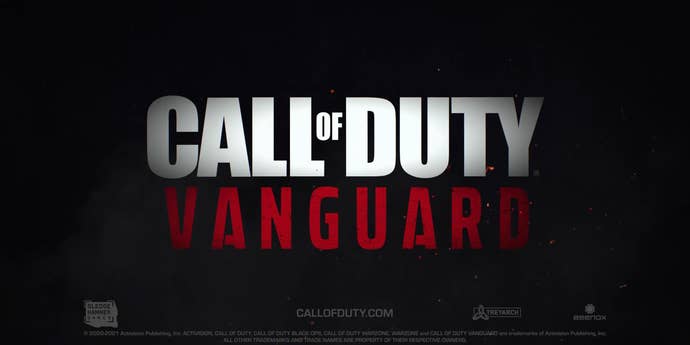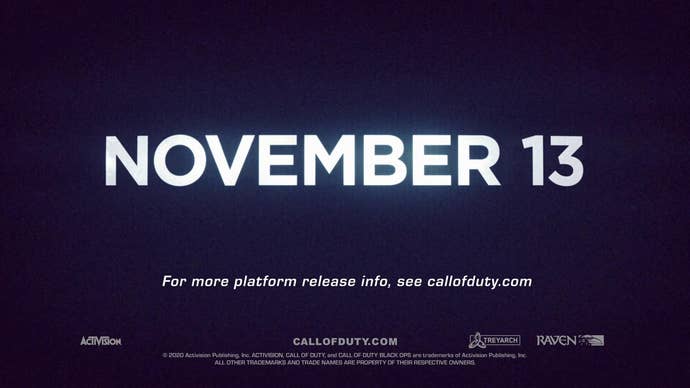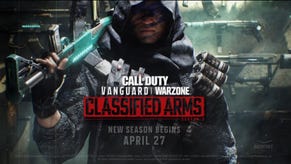Activision sure is trying to hide from the Call of Duty: Vanguard reveal trailer
Call of Duty presents Call of Duty. A Call of Duty game.
Activision revealed the new Call of Duty overnight, following a Warzone event. It's called Call of Duty: Vanguard, as we've known for months now thanks to various reports.
The reveal itself wasn't anything special; we got a story trailer setting up the tone and showing the post-WW2 setting. It had a mix of CG and some gameplay, as is standard, with the promise of more actual gameplay footage down the line.
All in all, it was a fairly standard affair, but eagle-eyed fans noticed something strange in the reveal trailer. Traditionally, reveal trailers start out with "Activision presents", and if they don't, the company's logo typically appears somewhere in there.
The Vanguard trailer did not have a single Activision logo. Instead of "Activision presents" the trailer uses "Call of Duty presents" - Call of Duty presents Call of Duty! If this looked awkward to you as you watched the trailer, you're not alone.
If you scrub to the end of the Vanguard trailer, the bit with all the logos of the developers involved, there's a suspicious gap to the left of the frame where Activision's logo would go. The Black Ops Cold War trailer definitely made no secret of the fact it's published by Activision, but the Vanguard reveal highlights the brand and the studios, to a suspiciously-prominent degree. Activision’s name does show up in the legalese, but that’s about it.
Here's how the Vanguard reveal trailer ends.

And here's last year's Black Ops Cold War for comparison.

Some theorise that Activision is trying to keep its tainted name away from the game following its major lawsuit with the State of California over the company's frat boy culture. Indeed, most of Call of Duty's audience likely doesn't know who Activision is, or really care, so this doesn't quite make sense. It's possible Activision may not fully stand behind the product, which is another theory, but that also doesn't quite hold up.
Nevertheless, it's a strange situation for a company whose biggest product is Call of Duty to not want its name associated with it.
.png?width=690&quality=80&format=jpg&auto=webp)

.jpg?width=291&height=164&fit=crop&quality=80&format=jpg&auto=webp)
.jpg?width=291&height=164&fit=crop&quality=80&format=jpg&auto=webp)
.jpg?width=291&height=164&fit=crop&quality=80&format=jpg&auto=webp)


.jpg?width=291&height=164&fit=crop&quality=80&format=jpg&auto=webp)